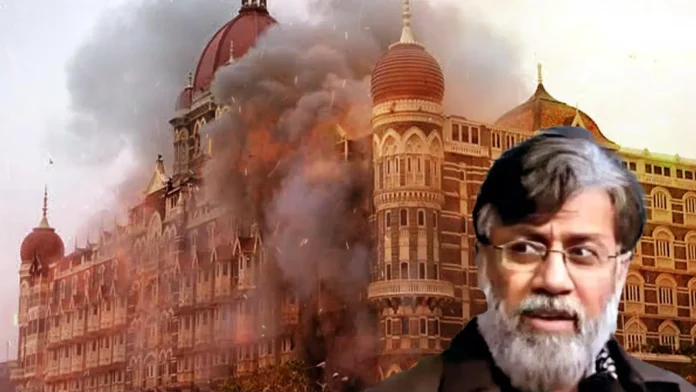NEW DELHI, April 10: Tahawwur Hussain Rana, one of India’s most wanted accused in the 26/11 Mumbai terror attacks, is on his way to New Delhi following his extradition from the United States. His return marks a significant milestone in India’s pursuit of justice for the 2008 terror strike that claimed 166 lives.
A special chartered flight carrying the 64-year-old left the US on Wednesday, April 9, after he exhausted all legal options to prevent his extradition. Sources have confirmed that Rana, a Canadian-American citizen of Pakistani origin, is expected to arrive in New Delhi later today.
Upon arrival, he will be taken into custody by the National Investigation Agency (NIA), which is coordinating the extradition along with the Research and Analysis Wing (RAW). He is likely to be presented before a Delhi court soon after his landing.
Rana faces multiple charges under various sections, including criminal conspiracy, waging war against the Government of India, murder, forgery, and violations under the Unlawful Activities (Prevention) Act. However, the Mumbai Police have not yet received any official communication regarding his transfer to the city.
On Wednesday, Union Home Minister Amit Shah called the extradition a major diplomatic victory for Prime Minister Narendra Modi’s government. “Tahawwur Rana’s extradition is a big success of Prime Minister Modi’s diplomacy,” Shah stated, adding that it was a defining triumph for the administration and a step toward delivering justice to the victims of the heinous attacks.
Rana’s extradition signals the beginning of long-awaited legal proceedings into one of the most catastrophic terror events in India’s recent history.
He was officially handed over to the NIA on April 8, 2025, in California, after waging a prolonged legal battle in the US to avoid extradition. His legal team filed several appeals, including to the US Supreme Court, but all were ultimately denied.
Rana cited serious health concerns in his defence, including Parkinson’s disease, a significant abdominal aneurysm, and signs of bladder cancer, arguing that these conditions rendered him unfit to stand trial in India. However, the US courts were not convinced, with his final appeal being dismissed on April 7.
His extradition is also seen as fulfilling a reported commitment made by former US President Donald Trump during talks with Prime Minister Modi.
A known associate of David Coleman Headley, another key conspirator in the 26/11 plot, Rana is suspected to have close ties with Pakistan’s Inter-Services Intelligence (ISI) and the terror group Lashkar-e-Taiba.
While a US jury had previously acquitted him of direct involvement in the Mumbai attacks, he was convicted on other terror-related charges and served over ten years in prison. He was released during the Covid-19 pandemic due to health issues but was re-arrested in 2020 following India’s extradition request.
Rana’s arrival in India marks a crucial chapter in the investigation of the 2008 Mumbai attacks and is expected to provide deeper insight into the global terror network and its links with state-sponsored entities. The Indian government is anticipated to push for a swift trial in this high-profile case.

